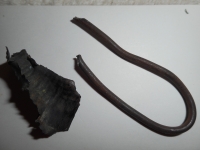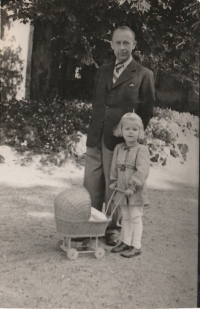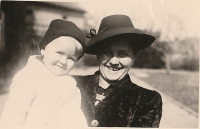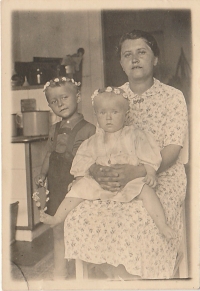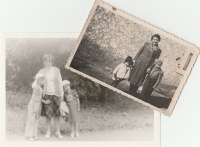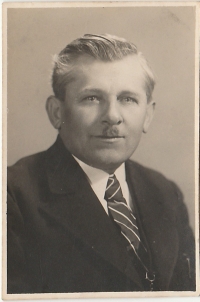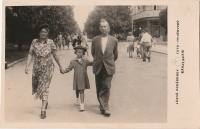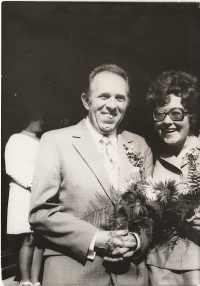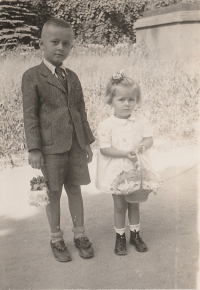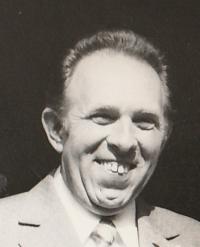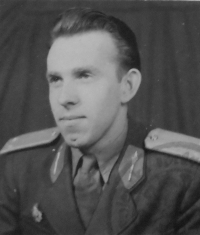Political prisoners in the uranium mines had been better informed than ourselves as civilian employees
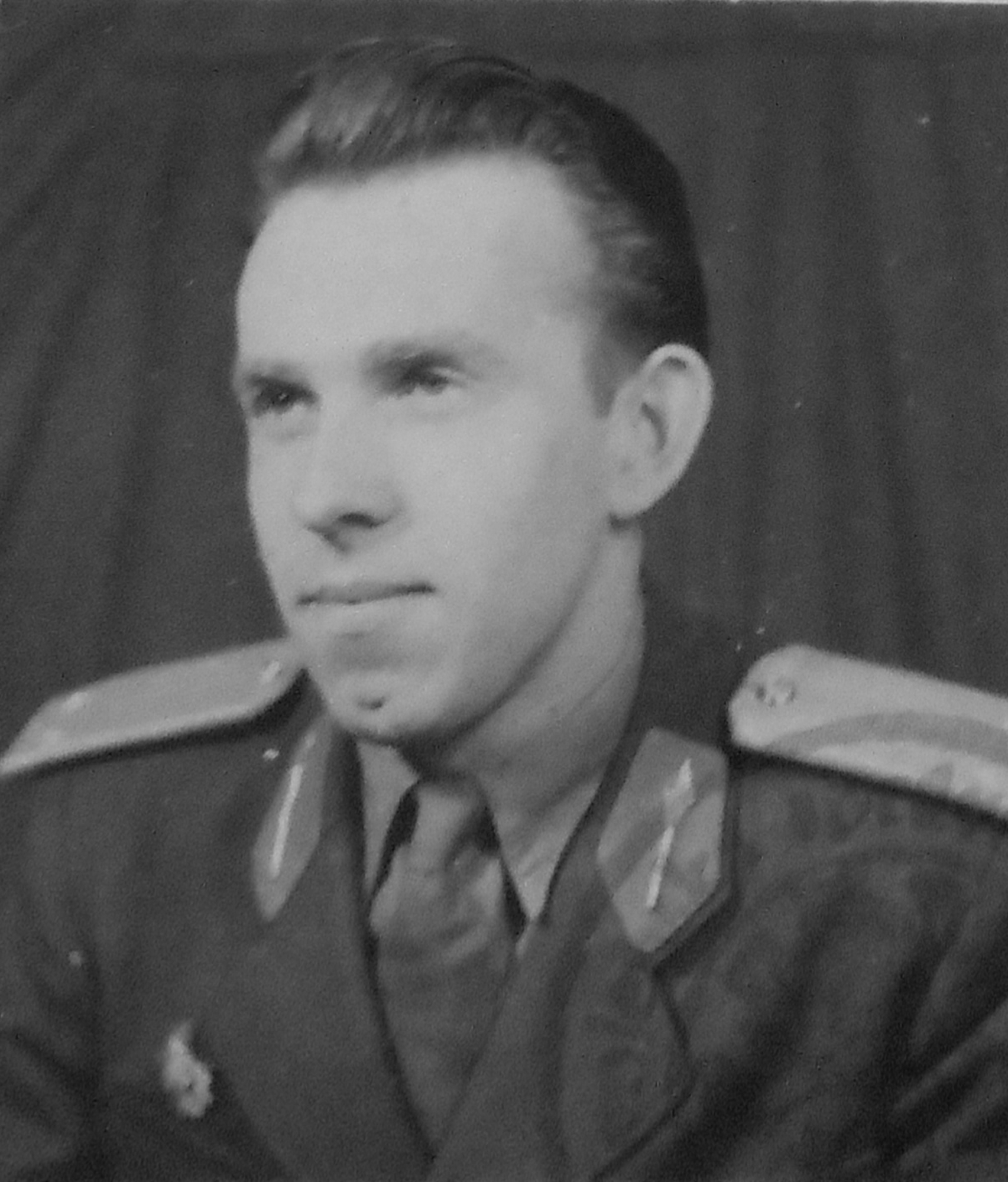
Stáhnout obrázek
Jiří Jaroš was born on June 12, 1930 in Zbraslav as the son of Marie and Jaroslav Jaroš. His father was a shoemaker, his mother was a labourer. Jiří spent the war years in the country with his relatives, mostly with his grandfather in Vokov. After completing his elementary education, he trained as a goldsmith, but after the communist coup and the following elimination of the self-employed class, his employer had to close his business as well. Jiří Jaroš never returned to his profession. He began his military service, enrolling at a reserve officer training school. After a year, he was ordered to go to Pilsen to train recruits. He also served at an army theatre led by Emil František Burian, where he had been giving basic training to soldiers – actors, he also organised tours to the border areas where the theatre had been playing at local garrisons. Later he was transferred to a garrison stationed at Prague – Kunratice, yet he couldn‘t get along with his commanding officer and left the army at his own request. He was forced to sign a work contract with the uranium mines in Příbram. He had been working as a blaster and was meeting political prisoners on a regular basis while doing his job. He left the mines after a year due to severe injuries sustained at work. After he had recovered, he started working as a tool grinder at a machine works in Modřany, then he was a director of the municipal cleaning services office at Zbraslav. He left the Communist party after the Warsaw pact invasion of 1968 and had been working at a road maintenance office in Prague – West till his retirement. He was married twice and has four children.
